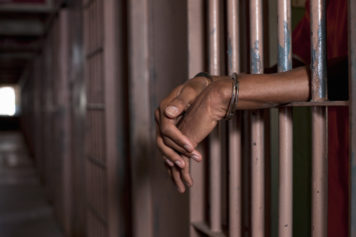
Inmates are expected to pay the debt for their crime with the time they spend behind bars in addition to any other fees or consequences that may have been assigned to them as a part of their sentencing.
But even when all this has been paid off, inmates suddenly realize that the tab for their crimes is much higher than any judge had previously revealed. Most jails and prisons slap inmates with a hefty bill for the costs it took to house them during their own incarceration, as if they had signed up for some voluntary vacation or summer camp. Everything from room and board fees to the costs of doctor’s visits are included on their tab and some states even add in fees for clothing.
Since incarceration typically costs someone their career anyway and throws them into a cycle of unemployment, the financial responsibility of their prison time tends to fall on family members who may have already been struggling.
“That creates lasting, detrimental effects on inmates and their families—and society as a whole,” Vox contributor Dara Lind explains. “It doubles the strain on inmates’ families: in addition to losing a household income, they have to pay to support their incarcerated family member. And it makes it even harder for inmates to get back on their own two feet financially after they’re released from prison.”
According to Lind, the impact of the pay-to-stay laws have now left roughly 10 million Americans drowning in about $50 billion in debt to the criminal justice system. And if you’re thinking it’s making prison time more affordable, it’s not.
“All of this would at least be explicable if the fees that got charged were actually recouped,” Lind continued. “But they’re not. Even when a collections agency gets called in, governments often don’t see much of the money they’re owed. At least one county [in Minnesota] had to overhaul its pay-to-stay program because it wasn’t making as much as it cost to run.”
That’s right. The programs could actually cost counties more money rather than help slash the cost of running and operating a prison. So the benefit of such a program is yet to be seen despite the fact that this is the reality for inmates all over America.
This also means that many inmates are left struggling to even re-enter society as they are forced into the depths of poverty without a job and a dark cloud of debt lingering over their heads.
Those circumstances often drive former inmates to become repeat offenders and return to prison shortly after being released and before they have even made a dent in their bill for the first prison stay.
This also doesn’t take into account the fact that it puts inmates at risk health-wise as well. Since pay-to-stay programs are also charging inmates for every doctor’s visit they request, inmates are less likely to even ask for medical attention even when they need it.
While some prison’s stick with a low annual fee for medical expenses, others are charging $100 a year for inmates who ask to see a doctor at any time.
“As the Brenan Center points out, some inmates are afraid to ask to see a doctor if they know their families will get hit with a fee for it—which increases the risk that an inmate won’t get treated for a contagious disease that will spread through the facility,” Lind added.
Some inmates are also discouraged from getting jobs while in prison because some counties include additional fees for work release programs.
It all creates a clear explanation as to why so many people who are incarcerated for minor offenses and are suddenly left in poverty or pushed into homelessness as a result of their criminal past.
In America, a country that already has an embarrassing reputation for locking up so many of its citizens, inmates aren’t done paying for their crimes simply because they have been released from their gloomy cells.
Rather, the true debt of their crime will fall on their family members as well, and could possibly follow them for the rest of their lives.


